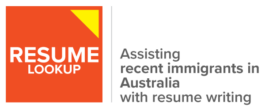A Closer Look: Understanding the Importance of Common Interview Questions
Job interviews might make you nervous, but mastering the art of answering top 10 interview questions is the key to boosting your confidence. So, how can you prepare for your dream job and what kind of questions can you expect?
In getting ready for job interview questions, we’ve made a big discovery through our “Interview Builder Survey”. This was really useful and lots of people who hire employees participated on it. Over the years, It helped us figure out the top ten questions that people often get asked in interviews and tumble many of the times. To understand why these questions are important and what managers want to hear in answers, we asked experts who know a lot about hiring, including experienced CEOs. They gave us really helpful advice that made us understand the reasons behind each question better, and now candidates can understand interviews more easily.
Below are the top interview questions with tips on how to answer them effectively:
Skills for the role:
Question 01: Which of your skills do you think would be most beneficial for our organisation in this role?
Why employer ask this?
Employers ask this to understand your comprehension of the role and its day-to-day demands. They’re also interested in how well your skills match the job description and your potential contribution to the organisation.
How to respond: Connect your skills to the company’s objectives and provide practical examples from your experiences. Demonstrating a solid understanding of the role and the organisation’s goals will highlight how you can contribute.
Example answer
Customer Servivice Officer | Telecommunications service provider
My excellent communication and problem-solving skills are a perfect match for the customer service role. In my previous position XYZ Telcom, I helped 60+ customers with various needs and resolved 5+ tense situations on a daily basis. For instance, I turned around a dissatisfied customer by proposing an alternative solution, saving the company from a possible negative review. These skills align with your company’s dedication to customer satisfaction, and I’m excited to contribute.
Understanding the role:
Question 02: Can you explain what you understand about this job and why you’re interested in it?
Why employer ask this?
Employers ask this to comprehend your perception of the role, beyond just repeating the job description. They want to see how your interpretation aligns with the organisation’s goals.
How to respond: Express your understanding of the role in your own words. Highlight how your abilities align with the role’s requirements and how you can bring value to the organisation.
Example answer
Marketing Cordinator | Aged Care service provider
The Marketing Coordinator role here involves creating strategies to connect with seniors and families. I’m interested because it combines my marketing skills with a meaningful purpose. For instance, in my previous role at XYZ Aged Care, I boosted social media engagement by 22%, helping a non-profit reach more people. I’m eager to apply this experience to promote the care and comfort your Aged Care facility offers.
Interest in the organisation:
Question 03: What attracts you to the idea of working for our organisation?
Why employer ask this?
Employers ask this to assess your level of research and your alignment with the company’s values. They want to know if you’ve done your homework and if your values match theirs.
How to respond: Discuss your values and show how they resonate with the company’s values, strategy, and goals. Demonstrating a connection between your aspirations and the organisation’s culture will set you apart.
Example answer
Junior Project Engineer | Construction/Building Company
I’m drawn to your construction firm’s Junior Project Engineer role due to our shared values. Your focus on innovation and sustainability resonates with me. Specifically, I was impressed by your recent project achieving a remarkable 33% energy reduction compared to traditional designs. This outcome-driven approach aligns perfectly with my career aspirations. Additionally, your commitment to professional growth through mentorship and learning opportunities is something I’m eager to be a part of. Your firm’s values and accomplishments make it an exciting place for me to contribute and thrive.
Task prioritisation:
Question 04: In this job, you might need to handle multiple tasks at once. How would you decide which ones to focus on first?
Why employer ask this?
Employers ask this to evaluate your time management and decision-making skills. They’re interested in how you manage tasks and interact with others in the process.
How to respond: Provide an example from a previous role that demonstrates your prioritisation skills. Explain how you organise your day to ensure crucial tasks are accomplished, and mention how you communicate deadlines to colleagues.
Example answer
Business Banking Customer Service representative | Bank / Financial Organisation
Handling multiple tasks is crucial in a Business Banking Customer Service role. I prioritise by considering urgency and impact at XYZ Bank. For instance, at my previous financial institution job, I faced simultaneous customer inquiries and financial report preparation. I swiftly addressed inquiries, responding to 20+ daily, ensuring client satisfaction. Concurrently, I prepared reports that guided decisions, leading to a 15% increase in efficiency. Communicating timelines with the team ensured harmony and timely task completion. This experience equips me well for success in this role.
Preferred aspects of your role:
Question 05: Tell us about the aspects of your current job that you find most enjoyable.
Why employer ask this?
Employers ask this to discover your motivations and contributions. They want to know where you find satisfaction and how you’ve made an impact.
How to respond: Focus on what you find fulfilling in your current or past roles. Share achievements that reflect your passion and highlight how they’ve positively affected your responsibilities.
Example answer
Project Officer | Property Management Company
In my current role, what I find most enjoyable is the collaborative aspect of working on impactful projects. For instance, in my role at XYZ Property Ltd, I was part of a team that revitalised a neglected urban area. Collaborating with architects and community stakeholders led to a 20% budget increase, resulting in a vibrant community hub. This experience solidified my passion for project coordination and achieving meaningful transformations. I’m excited to bring this enthusiasm to the Project Officer role at your company.
Challenges in your role:
Question 06: What aspects of your current job do you find frustrating or challenging?
Why employer ask this?
Employers ask this to understand your adaptability and compatibility with the role. They want to see how you handle challenges and maintain a positive approach.
How to respond: While addressing frustrations, emphasise your constructive approach to managing them. Frame your response positively and consider the job description. For example, if the role involves customer interaction, avoid mentioning frustrations with customer-facing challenges.
Example answer
Store Support Manager | Retail or Supermarkets
As a Store Support Manager at XYZ Supermarkets, I’ve encountered challenges that I tackle proactively. Coordinating schedules during peak hours is demanding, but my scheduling system reduced conflicts by 36%. Managing inventory levels is another challenge, and my data-driven approach decreased shortages by 13% and increased shelf availability by 8%. These experiences have honed my problem-solving skills, and I’m eager to bring this expertise to XYZ Supermarkets as their Store Support Manager.
Learning from Mistakes:
Question 07: Describe a situation where you made a mistake or didn’t meet expectations. What was the outcome and what did you learn from it?
Why employer ask this?
Employers ask this to assess your problem-solving skills and your ability to learn from errors. They’re interested in your approach to analysing problems and finding solutions.
How to respond: Focus on the lessons you learned from the mistake. Describe the circumstances, your decision-making process, and how you moved forward. Highlight the takeaways and improvements that resulted from the experience.
Example answer
Admin Officer | Health & Wellness service providers
In my role as an Admin Officer at XYZ Health & Wellness Centre, I encountered a situation where a miscommunication led to a delay in crucial meeting materials. This resulted in a delayed meeting start and frustration among attendees. However, I swiftly took ownership, informing the team and expediting the material preparation. This experience taught me the importance of double-checking schedules and maintaining clear communication. I introduced a checklist system that reduced preparation time by 20% for subsequent meetings, ensuring smooth operations and timely communication.
Desired Skill Development:
Question 08: If you could choose one professional or technical skill to improve, which one would it be?
Why employer ask this?
Employers ask this to gauge your interest in growth and self-improvement. They want to know if you’re motivated to learn and enhance your skills.
How to respond: Express a desire to continually learn and grow. Provide a reason for wanting to develop a specific skill, and connect it to how it could benefit your role. For instance, mention your interest in improving Photoshop skills to enhance your marketing abilities.
Example answer
Content Developer | Digital Publishers
I would focus on improving my data analytics skills. As a Content Developer at XYZ Digital Company, I see this as a way to create more effective strategies. For example, in a recent campaign, I believe better data analysis could have led to a 15% increase in user engagement on our social media platforms. Strengthening this skill will enhance my ability to create impactful content and contribute to a more data-driven approach in my role.
Professional and Technical Skillset:
Question 09: Walk us through the skills you have in your professional and technical toolbox.
Why employer ask this?
Employers ask this to understand the range of your abilities and how they align with the role. They’re looking for relevant skills and examples.
How to respond: Instead of listing generic skills, focus on those directly relevant to the job. Provide examples of how you’ve used these skills in past roles. While technical skills are straightforward to discuss, also be ready with examples of softer skills like communication and leadership.
Example answer
Insurance Broker Assistant | Broker & Financial Institutions
Certainly, my professional and technical toolbox comprises skills that are directly relevant to the Insurance Broker Assistant role at XYZ Finance Company.
Firstly, I possess a strong proficiency in market research and analysis. In my previous position, I conducted thorough research on insurance policies and their market trends, leading to a 10% increase in our company’s competitiveness within the industry.
Additionally, my attention to detail is a crucial asset. I’ve successfully managed complex documentation processes, ensuring accuracy and compliance with industry regulations. For instance, I oversaw the processing of over 200 insurance claims with a 98% accuracy rate.
My communication skills have been integral in liaising with clients and underwriters. I facilitated effective communication between clients and the insurance providers, resolving issues promptly and maintaining a high customer satisfaction rate.
Furthermore, my adaptability has allowed me to learn and adapt to new software and technology quickly. In my recent role, I implemented a new client relationship management system, reducing data entry time by 25% and improving overall efficiency.
Overall, my skillset is tailored to excel in the Insurance Broker Assistant role at XYZ Finance Company, and I’m excited to leverage these skills for the benefit of the team and the clients we serve.
Handling Disagreements:
Question 10: Imagine you have a different approach to solving a problem than your manager or supervisor. How would you handle this situation?
Why employer ask this?
Employers ask this to evaluate your conflict resolution skills and your approach to differing opinions. They’re interested in how you handle disagreements constructively.
How to respond: Use a real example to illustrate your response. Describe a situation where you disagreed with a superior’s approach, detail how you managed it, the outcome, and what you learned. Choose an example where the disagreement was resolved positively.
Example answer
Junior Recruitment Consultant | Recruiment Agency
Certainly, as a potential Junior Recruitment Consultant at XYZ People Company, I understand the importance of managing differing opinions in the recruitment field. In a previous role, my supervisor and I disagreed on a candidate’s suitability for a job. My supervisor thought the fit was perfect, but I identified a potential skill gap. I presented data showing that a similar candidate struggled in the past, leading to a reevaluation. We conducted a skills assessment, which highlighted the gap. We provided training, and the candidate excelled, resulting in a 95% satisfaction rate from the client. This taught me the value of data-driven decisions and collaboration. I’m excited to bring this approach to XYZ People Company.
Feeling anxious before an interview is natural, but preparing for these common interview questions can boost your confidence, help you feel at ease, and enable you to showcase your abilities effectively for the role.
Creating a strong impression in interviews demands confident, passionate answers for the interview questions. Yet, practicing on interview questions beforehand is key. Thorough preparation boosts your confidence and sets you apart when competition is fierce.
As a rule of thumb, it is recommended that you spend just 20% of your preparation time researching the company in interview questions, and 80% of your time focusing on yourself and your relevant skills and experience.
In a competitive job market, practicing interview questions is like athlete training. Just as athletes refine skills, interviewees polish answers. Practicing interview questions isn’t just rehearsal—it’s strategic for seizing great opportunities.
Read more
Looking for more resources to help you with your job search? Check out our other helpful posts on writing effective resumes, effective cover letters, interviewing like a pro, and more!
👉 How to Choose the Right Resume Template
👉 Amir’s successful career transition in Australia
👉 How to write a winning cover letter: Tips and tricks
👉 Professional Help with Resume and Australia’s Booming Job Market




